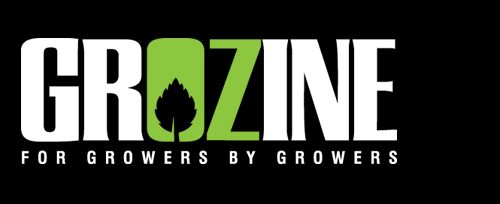
Jackson’s Vertical Hydroponic Farm Goes National With First-Of-Its-Kind Urban Farm Model
Vertical Harvest in Jackson is North America’s first vertical hydroponic farm. Because of its success, it is opening a 51,000-square-foot vertical farming facility in Maine and will break ground on another in Detroit.
Jackson Vertical Hydroponic Farm | Renee Jean |
IMAGE: One of the things Vertical Harvest is most proud of is it’s work force, including aggressive hiring giving jobs to disabled people
A Wyoming company that started as a way to use up an odd, leftover piece of land in a Jackson parking lot is about to cultivate new territory.
Vertical Harvest in Jackson lays claim to being North America’s first vertical hydroponic farm, and it really packs an agricultural punch. The business grows 40 acres worth of produce — tomatoes, micro greens, basil and more — on a quarter-acre urban hydroponic farm.
On top of that, it’s created an employment model that provides a marginalized population of disabled workers with good-paying jobs. That’s created opportunities for independent living and advancement that didn’t really exist for that population before.
As a result of their “growing well” employment model, which helps disabled people learn to navigate in the real world, some who were before deemed unable to live independently have earned re-evaluations and now have their own places.
Now Vertical Harvest is taking this doing well by doing good concept national.
The company has recently secured $56 million in financing to replicate what is a Wyoming success story in Maine, where the company plans to build a larger, 51,000-square-foot vertical farming facility in downtown Westbrook.
Westbrook has committed to growing 30% of its food locally by 2030, and Vertical Harvest’s “feed locals first” model with fresh, farm-to-fridge produce fits right into this goal.
Vertical Harvest’s plan for the facility there is to produce 2.5 million pounds of fresh, leafy greens every year. Because the plan is to go from farm to fridge within 24 hours, that would avoid a 30% loss in nutritional value that happens with food shipped from California, Arizona or abroad.
More Facilities Planned
Vertical Harvest is not stopping there, though.
The company is already preparing to break ground in Detroit with partner Dan Gilbert’s Bedrock Development. Gilbert is the entrepreneur who started Rocket Mortgage and Quicken Loans.
A third city will be announced sometime later this year, and Vertical Harvest is actively working with other communities that have reached out, asking it to replicate what company founders built in Wyoming in their communities.
That’s particularly meaningful to cofounders Nona Yehia and Caroline Estay.
“We always had an eye toward this model being scalable and replicable,” Yehia told Cowboy State Daily. “That’s always been our vision, to be able to build something from the ground up in the community, tailored to the community it serves.”
Beyond Food, Flowers And Filth
Neither Estay nor Yehia started out with a plan to be vertical farmers.
Yehia is an architect by trade, but she’s also a sister with a brother who has a disability. That has always given her a different perspective on architecture and infrastructure.
“What is the fabric of our communities, and how can communities solve 21st century problems?” she said. “And especially focus on people who are on the margins. And that’s what led us, me personally, to vertical farming.”
Yehia and a third cofounder no longer directly involved in the business, Penny McBride, had already been looking for property to build a greenhouse when they met Estay.
Estay worked as a case manager and an independent provider in Jackson for people with disabilities. In that job she has long noticed that there’s a great support system in place for school-aged people with disabilities, but not so much later on.
“The minute that school is done, it’s almost like falling off a cliff,” she said. “And so, I was supporting several young adults who were in that exact space.”
The job opportunities Estay found for them didn’t excite her, nor the families of the young adults she was trying to help.
“If there were any jobs, they were not that competitive a wage or with hours that could support someone on their own,” she said.
“You know, maybe a handful of hours here, there, and typically in the three ‘F’ categories, which is food, flowers and filth. So the opportunity to find a career path, to find a profession with and for individuals with disabilities, was really nonexistent.”
The Key Puzzle Piece
About the time Estay, Yehia and McBride were fruitlessly searching in pricy Jackson Hole for an affordable piece of land, a 30- by 150-foot-long tract of land adjacent to a parking garage near the Center for the Arts became available.
“The town of Jackson had a request for proposals for this awkwardly sized plot of land,” Yehia said. “And I think they’d envisioned that we might put up a plastic hoop house to extend the growing season by a couple of weeks to employ a few people there.”
Instead, Yehia designed a 44-foot-tall building with vertical growing units nine shelves high to grow microgreens, tomatoes, basil and all the other things that do well in that type of growing environment.
“The unit creates about 4,000 square feet of growing space within a 500-square-foot footprint,” Yehia said. “And that is the base for all the data as we expand across the country.”
That data helps make their concept not just replicable, but scalable and customizable to different communities.
Even as Vertical Harvest prepares to expand to other communities across the nation, it hasn’t lost sight of its Jackson origin.
“The plan for the future is to be able to respond to the demand for local food at scale, at volume, and affordably,” Yehia said.
So, Yehia and Estay are also upgrading the flagship Jackson facility with improved technology and processes that should boost production and further refine their growing well model for plants and people.
Origianl Article: https://cowboystatedaily.com/2024/05/19/jacksons-vertical-harvest-goes-national-with-first-of-its-kind-urban-farm-model/




